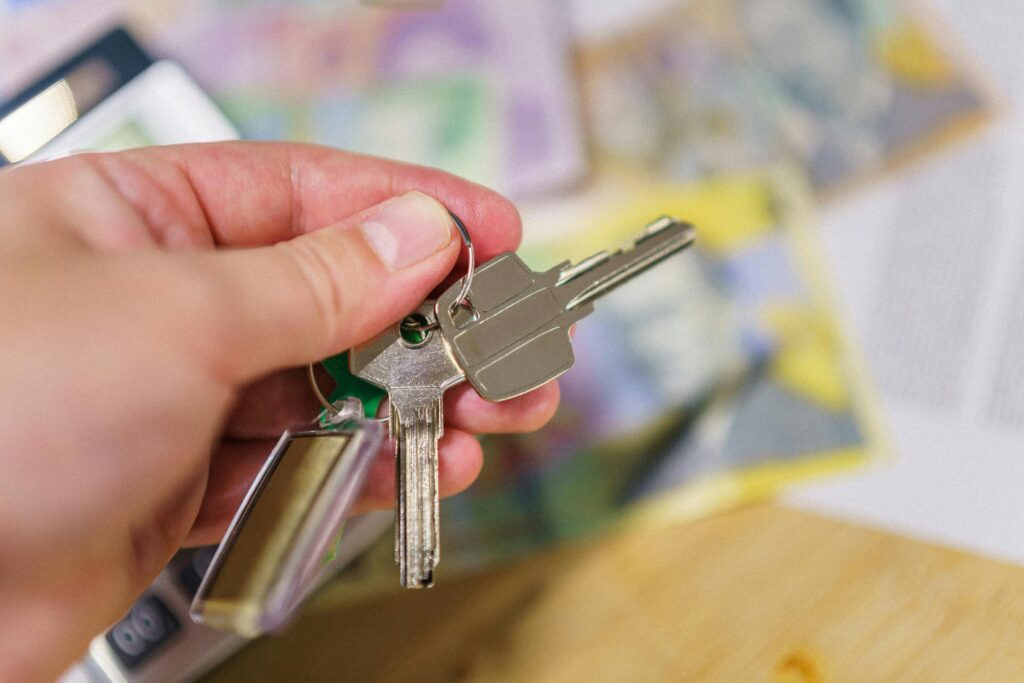Introduction
In addition to securing an asset, home equity-the gap between the market value of your house and the outstanding balance on your mortgage-also becomes a springboard to building wealth by investing in real estate, businesses, or the stock market. Homeowners can tap into this highly prized asset with home equity loans, HELOCs, and other forms of refinancing. And with home prices going up, strategic investment further enhances usage on home equity.
Discuss home equity as a source of wealth building. You will learn how real estate is used as an investment opportunity, funding your business venture, and more. We’ll also look at some of the risks and the recent data that often reflects current market conditions and helps us make informed financial decisions.

Understanding Home Equity Loans and HELOCs
1. Home Equity Loan vs. HELOC: Key Differences
- Home Equity Loan: A lump-sum loan that allows homeowners to borrow a fixed amount against their home equity with a set interest rate and fixed monthly payments.
- HELOC (Home Equity Line of Credit
Serve as a credit card offering a revolving line of credit with fluctuating interest rates. This allows you to draw funds, repay, and borrow again over the term of the draw period.
| Feature | Home Equity Loan | HELOC |
| Interest Rate | Fixed | Variable |
| Disbursement | Lump sum | As needed |
| Payment Structure | Fixed monthly payments | Flexible payment schedule |
| Best for | Large, one-time expenses | Ongoing or smaller needs |
How Home Value Growth Increases Equity
One of the biggest pieces is through appreciation of home value. Home prices in the U.S. have risen by 4-5% per year over the last few decades. That translates to a huge amount in terms of net worth over time. For example, during the years from 2012 to 2022, the median value of a home rose from nearly $140,000 to nearly $330,000. Obviously, appreciation fuel a huge boost of value of the equity.
This implies that equity can be released to invest without any need to sell the property, and therefore a great opportunity for a push into diversification of wealth.

Strategic Ways to Build Wealth Using Home Equity
1. Real Estate Investing
One strategy is to tap home equity to buy other real estate, says Hovey. With a home equity loan, or HELOC, homeowners can saddle the down payment on a rental property-or fund property flipping adventures. But rental income is passive; real estate appreciation builds long-term wealth.
- Rental Property Income: Using home equity to finance a rental property allows for the collection of monthly rent, offsetting loan payments.
- Property Flipping: A short-term strategy, where properties are bought, renovated, and sold for a profit.
2. Business Financing
Even business plans, such as starting a new business or expanding an already existing one, can be financed by tapping into home equity. For most business loans, home equity loans offer a low-interest alternative for funding growth. However, there’s quite a steep risk factor involved when starting a new business itself-theories say that nearly 20% of businesses fold within the first two years, so deliberate planning needs to accompany the formation of a business.
3. Stock Market Investment and Asset Diversification
Yet another strategy is borrowing home equity to invest in stocks, ETFs, or mutual funds. Investment may earn a higher return, but the risks are in the form of market risks. The catch is that the potential gains have to exceed the interest costs of the loan.
- Asset Diversification: By using home equity to invest in non-property assets, homeowners can reduce financial risks by spreading investments across multiple areas.
Loan-to-Value Ratio (LTV) and Its Importance
Another great measuring factor for the amount one can borrow is the Loan-to-Value (LTV) ratio. The ratio simply compares the outstanding loan amount with that of the appraised value of the property. For the most part, lenders will permit a borrower to borrow up to 80 percent of the value of the home, thereby leaving the borrower with some equity in case the market turns sour.
For example, if the house would sell for $500,000 and you owe 300K on your mortgage, you would have $200,000 in equity in that house. Using a maximum LTV of 80%, you can borrow up to $100,000 in your loan or HELOC.
Tax Benefits of Home Equity Loans
Interest payments on home equity loans used in remodeling the homes can be claimed as deductible. However, if the money is used for other things, including investment or even a small business venture, tax law currently in the United States would possibly not allow interest as a deduction. A tax adviser can help make sure that all benefits are maximized while at the same time ensuring compliance with the regulations.
Risks and Refinancing Strategies While home equity can accelerate the speed in wealth creation, it is associated with some sort of risk. You may be burdened with higher monthly liabilities and may stand the risk of losing your home if you are faced with financial setbacks. Cash-out refinancing may then be another viable tactic in which the homeowners can refinance their current loan into a new, larger loan and take the difference as the amount that they can use for investments.

Conclusion: Building Long-Term Wealth with Home Equity Leverage your home equity to fund wealth-it is a strategic move, which, if adequately planned and foreseen with foresight, will pay off big time. It can be invested in real estate, opening a business, or diversification to other financial instruments like stocks-leverage your home equity for capital away from your property. As home prices have increased in most U.S. markets by 4-5% a year for the last decade, homeowners have never had a better opportunity to fund their personal fortune by tapping into the equity.
However, using the home equity to accumulate wealth is not a risk-free game. Home equity loans and lines of credit place home owners in a vulnerable position: the threat of losing their homes to foreclosure if not adequately conscious of the amount of debt incurred and if one is not paying back the loan properly. As a consequence, interest rates on HELOCs may be volatile, and keeping track of loan terms is important. But careful management can often make the potential return worthwhile-payments otherwise spent on interest go towards more productive uses-and indeed, other investments like rental properties or stock portfolios create passive income that accrues over time.
Home equity loans and HELOCs are very flexible instruments for different financial goals. For example, if you need financing to secure a down payment on an income-generating property then a home equity loan might be better suited, but if the borrowing is for everyday business needs or stock investments, it might be with a HELOC. The choice between these instruments is a matter of your strategy about opportunity and repayment.
You can take a cash-out refinancing to tap large amounts of cash for investment. To this end, you replace your existing mortgage with a new mortgage promising access to cash for investment purposes while perhaps bringing down your interest rate. Besides that, tax benefits on home equity loans, if made to improve the house, bring in even more financial benefits.
Finally, with investing in home equity growing wealth fast, diversify and hence control your risks well. Asset diversification–diversifying your investments between a house, stocks, and businesses–avoids your financial wellness to be at its worst, even in cases of underperforming on one asset class. Whether you plan long-term wealth strategies through rental property income or short-term profit through flipping, building wealth through home equity requires decisions that are knowledge- and thought-based.
In simple words, tapping home equity is an excellent way to gain financial freedom, although it does go along with a balance between risk and reward. It calls for proper management of debt and strategic investments so that your property becomes a tool for perpetual wealth creation. Such research and judicious planning of finance can unlock the doors for unlocking one’s financial future through home equity.
FAQs
- What is home equity?
Home equity is the difference between the current market value of your home and the amount you owe on your mortgage. - What are the risks of using home equity?
Risks include potential foreclosure if loan payments are missed, increased debt burdens, and fluctuating interest rates with HELOCs. - How can I use home equity for passive income?
You can use home equity to buy rental properties, generating monthly rental income while building long-term wealth. - Is it better to use a HELOC or a home equity loan?
A home equity loan is better for one-time expenses, while a HELOC is more suitable for ongoing or flexible financial needs.
5. Can I use home equity to pay off high-interest debt?
Yes, using a home equity loan or HELOC to consolidate high-interest debts (like credit cards) can reduce your interest costs, making repayment easier. However, this shifts unsecured debt into secured debt, meaning your home could be at risk if you miss payments.
6. What happens if my home’s value declines after borrowing against equity?
A drop in home value can decrease your equity and increase the loan-to-value (LTV) ratio. If your LTV exceeds 80%, refinancing or selling may become challenging, and you could owe more than the property is worth (negative equity)
7. Can I qualify for a home equity loan if I have a second mortgage?
Yes, you can still qualify for a home equity loan or HELOC, but the combined loan-to-value ratio (CLTV) must usually stay within 85% of the home’s market value. Your credit score, income, and debt levels will also impact approval
8. Is it better to invest in stocks or real estate using home equity?
Both strategies have pros and cons. Real estate offers passive income through rent, while stocks offer liquidity and potentially higher returns. The choice depends on your risk tolerance and financial goals
9. How long does it take to build substantial equity in a home?
Substantial equity typically builds over 5-10 years through mortgage payments and home value appreciation. Making extra principal payments can speed up this process. A healthy market and timely mortgage payments ensure steady equity growth
10. Can I lose my home if I default on a home equity loan or HELOC?
Yes, since these loans use your home as collateral, failure to make payments can result in foreclosure. It’s essential to have a clear repayment plan to avoid jeopardizing your home
